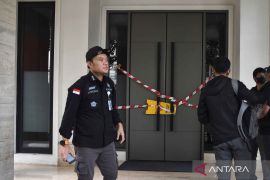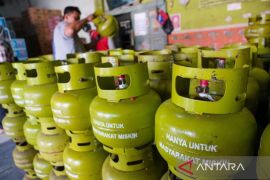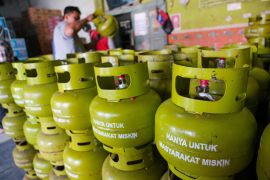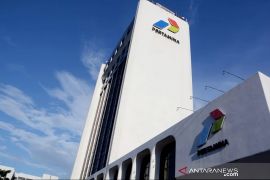"We will lower the prices of all non-PSO fuel products such as Pertalite to Rp7.1 thousand per liter and Pertamax to Rp7.5 thousand per liter," Pertamina Marketing Director Ahmad Bambang stated.Jakarta (ANTARA News) - State-owned oil and gas company Pertamina will cut the prices of non-subsidized or non-public service obligation (non-PSO) fuels by Rp200 per liter, effective from March 30.
"We will lower the prices of all non-PSO fuel products such as Pertalite to Rp7.1 thousand per liter and Pertamax to Rp7.5 thousand per liter," Pertamina Marketing Director Ahmad Bambang stated after a discussion at the Royal Hotel Kuningan here on Tuesday.
The prices of non-PSO fuels such as Pertalite, Pertamax 92, Pertamax Plus, and Pertamina Dex will be lowered sooner than the prices of subsidized fuels such as Premium gasoline and diesel oil, whose new prices will be effective from April 1, 2016.
Bambang said his company would also release large stocks of non-PSO fuels to offer an alternative option in case the supplies of Premium and diesel fuel ran out as a result of the introduction of the new prices on April 1.
"We will start releasing non-PSO stocks from tomorrow, and keep the storage tanks full. So, if we run out of Premium stock when the price is announced, then alternative stocks will be available," the Pertamina marketing director explained.
Bambang expressed hope that the prices of non-PSO fuels such as Premium and diesel oil would not be drastically reduced as many have forecast the global oil prices to rebound in the coming several months.
"We propose that the prices (of subsidized fuels) should be lowered, but not too significantly, so that problems do not surface if they are not raised by next July. There is no problem if Pertamina suffers losses for the time being. It is the governments authority to decide. But, I see that the people want stability. It could be lowered or raised but not to a large extent," Bambang affirmed.
Bambang believes that the government should prioritize this matter as an anticipatory step in the face of the three-month period from July onwards when the nation would observe the fasting month of Ramadan, the Eid el-Fitr or Lebaran festivity, and the long school holidays. If the prices of fuel oils are raised during this period, they will boost inflation and burden the people.
"The three-month period will begin from July 1 when there will be the Ramadan fasting month, to be followed by Lebaran, and the school holidays. After all, over the past 10 days, the global oil price has begun to show an upward trend, now reaching US$41 per barrel. If the average price of fuel in the world market increases, the government might not be ready to change the price all of a sudden. So, it would be better if the prices now are not lowered too much, so that in July, there will be no need to raise them again," he explained.
According to Bambang, the lowering of fuel prices to a significant level will not drive down the prices of goods, in general, but if they are hiked, they will also cause a surge in the prices of commodities.
"It is obviously indicated, so far, that if the prices of fuels go down, they are not automatically followed by a decline in the prices of basic necessities. Last January, for instance, the prices of fuels were significantly cut, but the prices of rice and meat also rose. In contrast, when the prices of fuels are increased, though only by Rp200 per liter, the prices of commodities increase and even cause inflation," he remarked.(*)
Editor: Heru Purwanto
Copyright © ANTARA 2016












